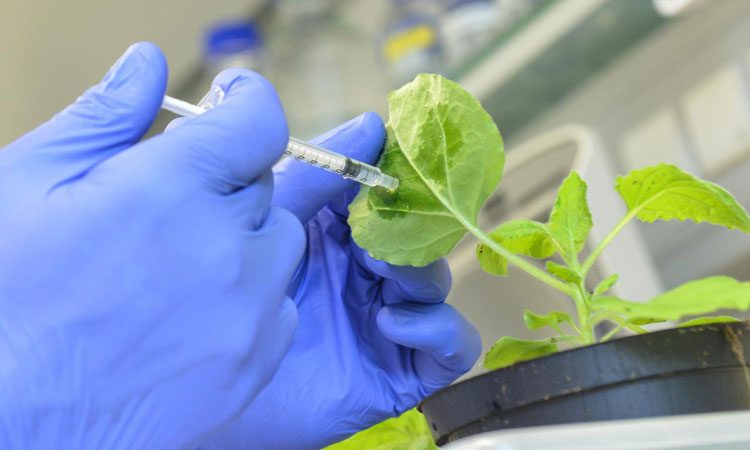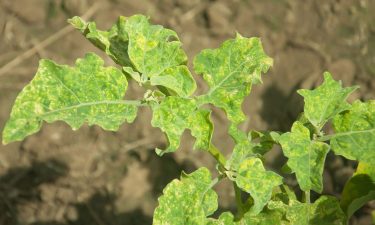New modular vaccination kit developed for plants
- Like
- Digg
- Del
- Tumblr
- VKontakte
- Buffer
- Love This
- Odnoklassniki
- Meneame
- Blogger
- Amazon
- Yahoo Mail
- Gmail
- AOL
- Newsvine
- HackerNews
- Evernote
- MySpace
- Mail.ru
- Viadeo
- Line
- Comments
- Yummly
- SMS
- Viber
- Telegram
- Subscribe
- Skype
- Facebook Messenger
- Kakao
- LiveJournal
- Yammer
- Edgar
- Fintel
- Mix
- Instapaper
- Copy Link
Posted: 22 August 2019 | Rachael Harper (New Food Magazine) | No comments yet
A new vaccination method for plants has been developed that is based on a molecular defence program of plants that is triggered by viral infections.


Using the novel approach by MLU's scientists, plants can be easily vaccinated (MLU/Markus Scholz).
Scientists have developed a new method to vaccinate plants against viruses which enables the rapid identification and production of precisely tailored substances that combat different pathogens.
The new method by scientists at Martin Luther University Halle-Wittenberg (MLU), the Leibniz Institute of Plant Biochemistry (IPB) and the National Research Council in Italy (CNR) is based on a molecular defence program of plants that is triggered, for example, by viral infections.
During a virus attack, the plant’s cells serve as a host to multiply the virus, which results in the creation of viral ribonucleic acid molecules (RNAs). Plants can detect and cut up these molecules using special enzyme scissors. This process produces small interfering RNAs (siRNAs) which spread throughout the plant and may initiate a second stage of defence for the plant. Here, the siRNA molecules attach themselves to so-called Argonaute protein complexes and lead these to the virus RNAs, which then, in the best-case scenario can be dismantled and broken down into harmless compounds.
“By implementing this two-stage process, the plant is trying to protect itself from the virus both at the site of the infection and throughout its structure,” said Professor Sven-Erik Behrens from MLU’s Institute of Biochemistry and Biotechnology. However, the process is not particularly efficient: “When a viral infection occurs, lots of different siRNA molecules are produced, but very few of them have a protective effect,” he explains “The majority simply saturate the Argonaute complexes, rendering them inactive.”
Behrens’ team has discovered a novel way to identify the few effective antiviral siRNA molecules for different viruses and harness them as plant vaccines. They have developed a screening process based on plant cell extracts, which is being used instead of lengthy, complex breeding efforts.


The researchers have discovered a novel way to identify the few effective antiviral siRNA molecules for different viruses and harness them as plant vaccines.
To qualify as potential vaccines, the siRNA molecules must have two key properties: they have to bind strongly to the Argonaute complexes and they have to lead these proteins to sites of the viral RNAs that are accessible for Argonaute-mediated degradation.
The team have already been able to prove the effectiveness of their new method by studying two groups of the tobacco plant N. benthamiana which were infected with a model virus that attacks tomatoes and tobacco. Before being infected, one group was vaccinated with highly efficient siRNA molecules that the researchers had identified using the new method. The other group didn’t receive any treatment.
After six weeks, 90 percent of the vaccinated plants did not show any signs of infection, but all the untreated plants had been killed by the virus.
The researchers discuss their work in the next edition of the journal Nucleic Acids Research.
Related topics
Related organisations
Leibniz Institute of Plant Biochemistry (IPB), Martin Luther University Halle-Wittenberg (MLU), National Research Council in Italy (CNR)








